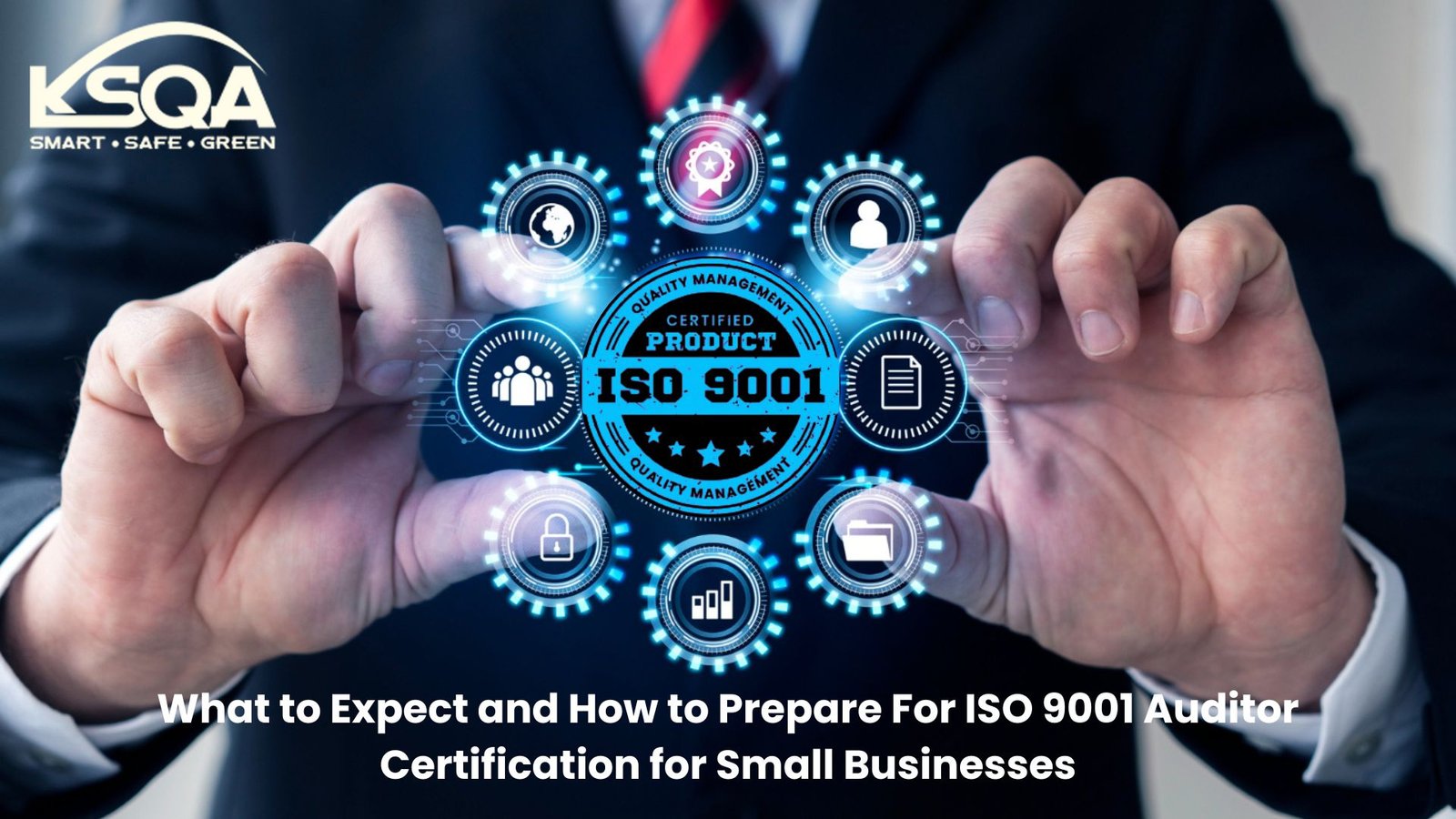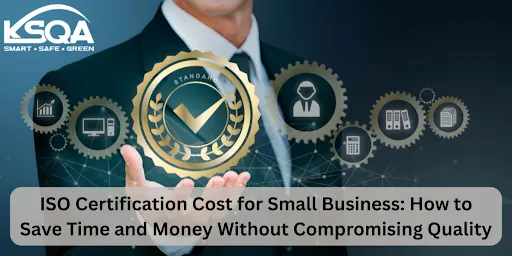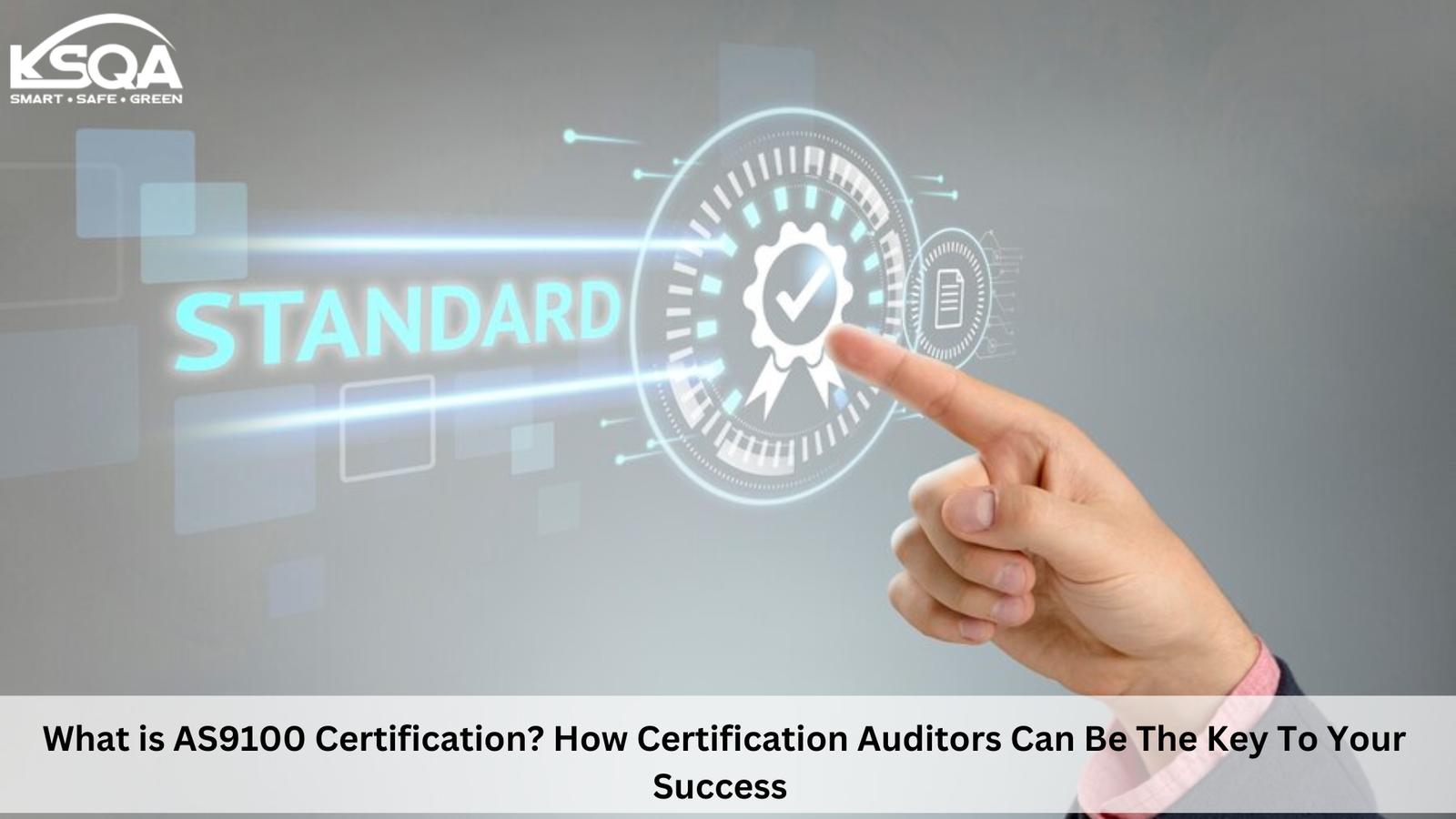In the dynamic landscape of modern business, obtaining ISO certification is often a crucial step for small enterprises aiming to establish credibility and improve their operational standards.
While the benefits of ISO certification are significant, the journey towards achieving it can be tricky and full of challenges. Small business owners, in particular, often find themselves navigating common pitfalls that can hinder the entire certification process. If you do not address them properly, these pitfalls might even lead to unsuccessful attempts.
In this comprehensive blog, we'll dive into the challenges, providing you practical insights on how to get ISO certification for your small business. We aim not only to highlight potential pitfalls but also to guide you towards a successful ISO certification journey.
Why Do Small Businesses Need ISO Certification?
Before we delve into mistakes we must address to make a successful attempt to get an ISO certification, we need to understand why having ISO certification is imperative for your business health.
According to De GRANDSON Global, "over one million organizations worldwide, covering 1.5 million sites, were independently certified to ISO 9001, making it by far the most widely used management system standard in the world today in 2021".
Some of the crucial benefits are;
1. Customer Satisfaction
ISO 9001 ensures continual improvement to meet customer needs in the evolving business landscape.
2. Management Leadership
This standard plays a vital role in leadership and management commitment, fostering a culture of quality and employee engagement in your business.
3. Process Improvement
ISO 9001 focuses on enhancing processes for increased competitiveness, productivity, and reduced costs.
4. Managing Risk
ISO 9001 is very crucial in the near future as it provides a framework for organizations to identify and manage risks effectively in the increasingly complex business environment.
5. Continuous Improvement
The standard's emphasis on continual improvement ensures your organization adapts to the changing market dynamics and remains resilient.
Challenges Small Businesses Face While Obtaining ISO Certification
Navigating the path to ISO certification might be tough for your small business. You'll face different challenges, like managing costs and figuring out how your organization works. Overcoming these hurdles requires careful thinking and finding specific solutions.
Here are some of the challenges that must be handled in time with proper strategies.
Pitfall 1: Underestimating the Importance of ISO 9001 Auditor For Certification
In the pursuit of ISO certification, a fundamental mistake is often made by underestimating the importance of having a professional auditor for achieving ISO 9001 certification. ISO 9001, as a quality management standard, these skilled auditors play a pivotal role in evaluating compliance and ensuring that your business meets the required standards.
Solution: To address this issue, it is crucial for small business owners to invest in ISO 9001 auditor certification for key personnel. Otherwise, businesses can consider the option of hiring external auditors with the necessary credentials. Trained auditors bring valuable expertise to the certification process, significantly increasing the chances of a successful outcome.
Pitfall 2: Overlooking the True Cost of ISO Certification for Small Businesses
Another prevalent mistake that most business owners make is analyzing the comprehensive ISO certification cost for small businesses. Small business owners focus solely on the certification fees and neglect the additional expenses such as documentation and potential productivity loss during the implementation phase.
Solution: The key to overcoming this challenge is to conduct a thorough cost analysis that encompasses all aspects of the certification process. This includes not only certification fees but also consultant costs (if applicable), training expenses, and any potential operational disruptions. A holistic approach ensures that your business is financially prepared for the entire certification journey.
Pitfall 3: Neglecting the Importance of Employee Training and Awareness
ISO certification is not merely a box to tick; it's about instilling a quality-focused culture within your organization. Neglecting to train employees and creating awareness about the importance of ISO standards can lead to resistance and a lack of commitment from the workforce.
Solution: To address this, small business owners like you must prioritize employee training and communication programs periodically. It is imperative to ensure that all your staff members understand the relevance of ISO standards to their roles and how their contributions impact the overall success of the certification process.
Pitfall 4: Rushing the Documentation Process
Documentation is the cornerstone of ISO certification, and a common pitfall is rushing through this critical process. Inadequate or inaccurate documentation may lead to non-compliance during audits, jeopardizing the entire certification effort.
Solution: The key to overcoming this challenge is to allocate sufficient time and resources for the documentation process. You need to create a comprehensive quality management system (QMS) manual, procedures, and records that accurately reflect the organization's processes and adherence to ISO standards.
Pitfall 5: Failing to Involve Top Management
ISO certification is not a task that can be delegated entirely to lower-level management. Small business owners often make the mistake of not involving top management actively, leading to a lack of leadership support and commitment.
Solution: It is essential to ensure that your top management is actively engaged in the certification process. Their commitment provides the necessary resources, support, and leadership to drive the implementation of ISO standards throughout the organization.
Pitfall 6: Overlooking Continuous Improvement
A critical mistake some businesses make is viewing ISO certification as a one-time achievement rather than an ongoing commitment to continuous improvement. Compliance is essential, but the ultimate goal is to drive improvement within the organization.
Solution: You need to embrace a culture of continuous improvement in your business environment. Establish mechanisms for regular internal audits, management reviews, and feedback loops to identify opportunities for enhancement and ensure sustained compliance with ISO standards.
Pitfall 7: Ignoring the Importance of Pre-Assessment Audits
Some small businesses may skip the pre-assessment audit, considering it an unnecessary step. However, a pre-assessment can reveal potential issues that may arise during the official certification audit, providing a valuable opportunity for correction.
Solution: You must conduct a pre-assessment audit as a proactive measure to identify the gaps and areas that require improvement before the official certification audit. This approach enhances the chances of a smooth and successful certification process.
Pitfall 8: Focusing Solely on Compliance, Not Improvement
While compliance with ISO standards is crucial, businesses often make the mistake of viewing ISO certification as a checkbox exercise without leveraging it for operational enhancement.
Solution: It is imperative to emphasize the dual nature of ISO certification – compliance and improvement. Use the certification process as an opportunity to optimize processes, enhance efficiency, and deliver better quality products or services to customers.
Pitfall 9: Not Seeking Professional Guidance
Attempting to navigate the complexities of ISO certification without professional guidance is a common mistake. Small business owners sometimes underestimate the need for consultants or external experts, leading to potential pitfalls.
Solution: To address this, you should consider seeking the assistance of experienced ISO consultants or advisors. Their expertise can streamline the certification process, provide you with valuable insights, and ensure that your business meets all requirements.
Pitfall 10: Neglecting Post-Certification Maintenance
Achieving ISO certification is a significant accomplishment, but the journey doesn't end there. Some small businesses make the mistake of neglecting the ongoing maintenance and monitoring required to uphold ISO standards.
Solution: Establishing a robust post-certification maintenance plan is essential. Regularly review and update processes, conduct internal audits, and stay informed about changes to ISO standards to ensure continuous compliance.
Conclusion
The road "how to get the ISO certification" for small businesses can be challenging. But with proper awareness and proactive strategies, you can navigate these pitfalls successfully. By addressing these common mistakes and comprehensively adopting a holistic approach not only helps you in managing the ISO certification cost for small businesses effectively but also works as a catalyst for continuous improvement to achieve that business excellence you always dreamed of.
If you are still confused about how to get ISO certification for your small business- Connect with KSQA today! Elevate your business standard and navigate the challenges of securing your ISO certification with our expertise. Reach out to us to begin the journey towards excellence, showcasing your dedication to superior quality management.



.webp)



